To build a strong development research network, SweDev has institutional support members across Sweden that contribute to the work. Together with the institutional support members, SweDev creates cooperation and activities across institutions. Institutional support members have a representative in SweDev’s steering committee and are thereby guiding SweDev’s activity plan and engagement.
Is your institution interested in becoming part of our growing team of institutional support members? Learn more here and join us today.
Institutional support members
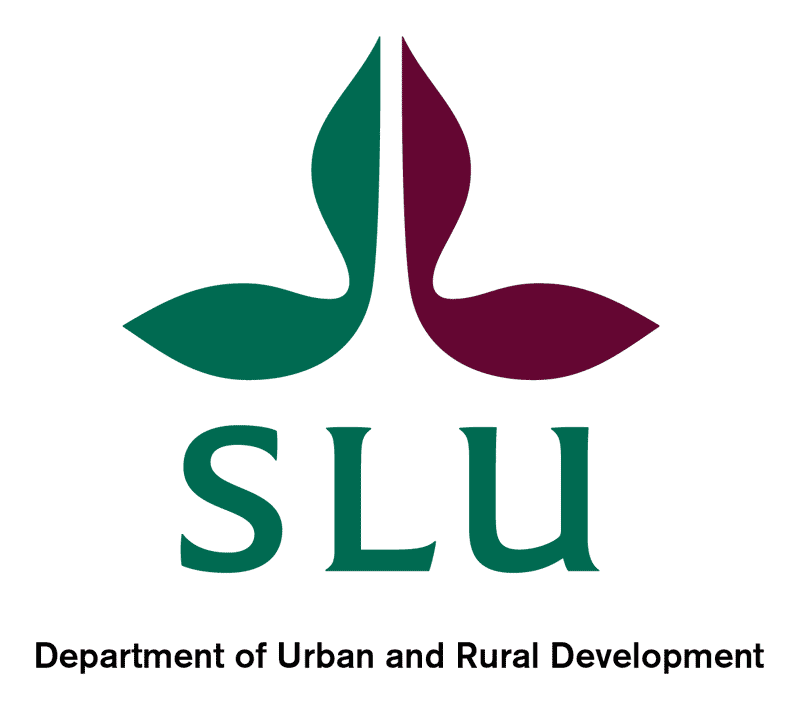
The Department of Urban and Rural Development at SLU pursues research, education and external collaboration in four subject areas: Rural Development, Agrarian History, Environmental Communication and Landscape Architecture. The department hosts three national centres: Sida’s Helpdesk for Environment and Climate Change, the Swedish Biodiversity Centre, and the Swedish Center for Nature Interpretation.
The department is large and consists of close to 200 staff who have education in all four research subjects, including courses and six educational programmes. The three Master’s programmes offered are in Rural Development and Natural Resource Management; Environmental Communication and Management; and Landscape Architecture for Sustainable Urbanisation. Approximately 30 PhD students are part of the Society and Landscape Research School that gives courses on various development-related topics.
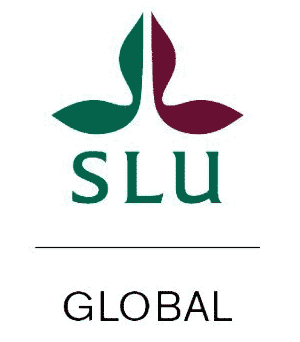
SLU Global is a unit at the Vice-Chancellor’s Office at SLU that supports and facilitates the university’s efforts to collaborate with low-income countries and regions, to contribute to Agenda 2030. SLU Global also coordinates an internal network open for all SLU employees including PhD students interested in collaboration with low-income countries. The aim of the network is to increase contact between employees and to promote collaboration. Mutual information is being spread, and we hold seminars and workshops. We look forward to sharing information between the network and SweDev.
SLU’s international engagement spans more than half a century and is aligned with Sweden’s Policy for Global Development. As one of the leading agricultural universities in the world, SLU continuously strengthens its work through international collaboration. Through cutting-edge research collaborations and long-term capacity-building partnerships, the university develops knowledge and supports capacity building that benefit society and contribute to sustainable global development. SLU is critically researching and developing the understanding of sustainability in different contexts and dimensions through an inter- and transdisciplinary approach.
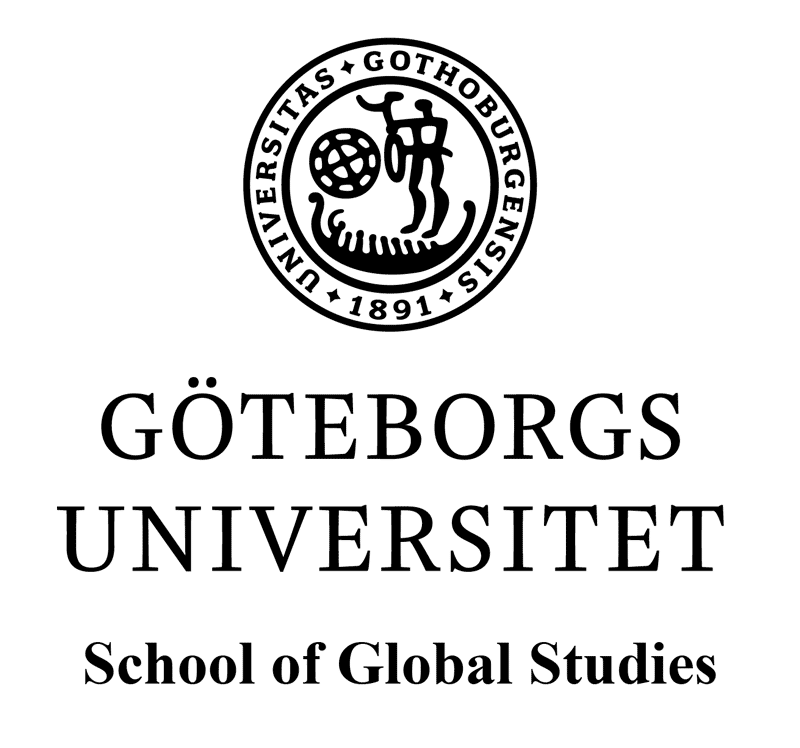
The School of Global Studies (SGS) at the University of Gothenburg is a pluralistic academic environment with around 120 staff in a range of subjects and disciplines related to development. With about 1000 students per year, the School offers a range of courses and programmes, such as a BA programme in Development Studies, BA and MA programmes in Global Studies, and PhD programmes in Peace and Development Research, Environmental Social Science, and Social Anthropology.
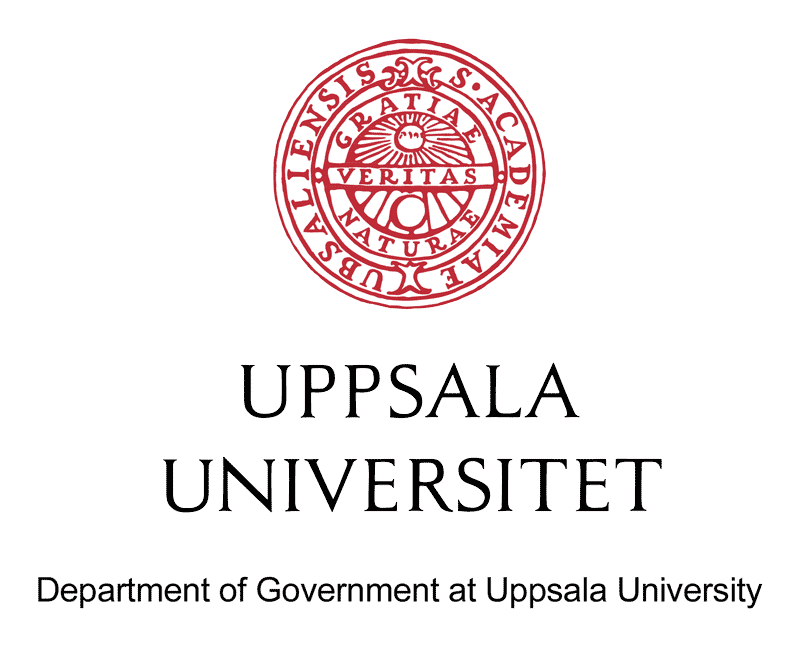
The Department of Government at Uppsala University is the administrative base of development education taking place at Uppsala University. Development research has counted as one of the strong areas of research at the department, with both senior and junior researchers attaining development studies grants, and many PhD students demonstrating an interest in this area of research. Development studies can be selected as an independent course at the undergraduate level and a MA in development studies can be obtained if students select certain courses within the MA programme in political science.
At present, four lecturers are employed with a particular specialization in development studies, although in practice a larger number focus their teaching on development studies. In the past few years, a bi-annual Development Research Day has been organized by the department with paper presentations, lectures and workshops. Development studies seminars are also offered throughout the year. The focus of development research at the Department of Government is democracy, peace-building, gender issues, the environment and climate, and migration.
The department collaborates closely with the Uppsala Peace and Development Student Association. Development Studies in Uppsala has links and networks both domestically and internationally. The Department of Government is also a member of the EADI.

Department of Peace and Development Studies at Linnaeus University was established in 2001 with its first undergraduate course offered in the autumn of 2002 and a one-year Master’s programme in Peace and Development work in 2004. There are currently two PhD projects related to development studies.
Research of relevance for development includes, among other things: democratisation/human rights in East and Southern Africa; local and participative democracy; sustainable development; the political economy of raw material extraction; rights to education and health; peace-building in developing countries, with special focus on Columbia and the Great Lakes Region; financial systems and economic development in post-Soviet Central Asia and Egypt; direct cash transfers; and iBali – democratising knowledge through creative storytelling in urban African schools.
The staff consists of five permanent full-time lecturers/researchers. The department also hosts the three-year International Social Science program with a specialisation in global studies, and a 7.5 credit module on Africa South of Sahara: Political Development and Conflicts. The programmes combine peace and development studies, with an emphasis on development studies, as these areas are inextricably intertwined in countries that are struggling to restore or maintain sustainable forms of development and peace.
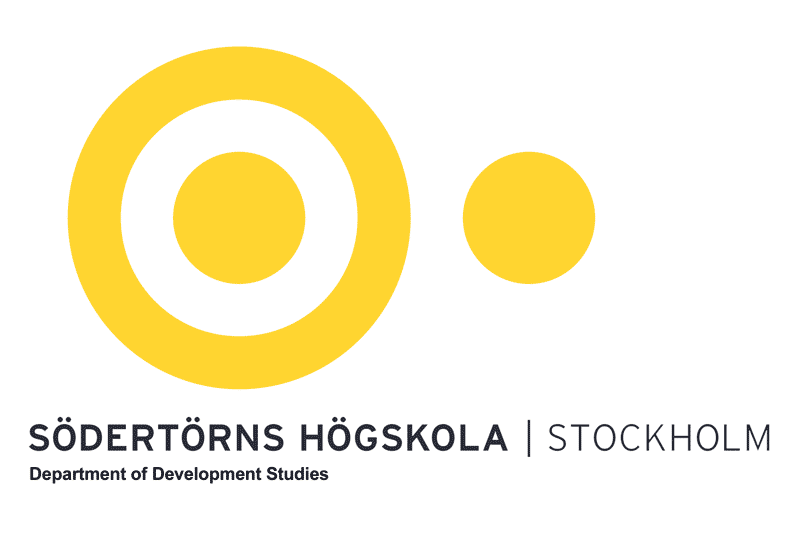
At Södertörn University, the School of Natural Sciences, Technology and Environmental Studies is responsible for the Development research. Around 15 researchers are active in the thematic field of development research, characterized by inter- and transdisciplinarity and focusing mainly on conditions and developments in the global South.
The development researchers primarily work within the interconnected thematic blocs of “Natural resources, Power Structures and Justice” and “Knowledge Generation, Conflict and Socio-ecological Challenges”, connected to the broader research theme of “Sustainability challenges and pathways” within the subject of environmental studies. These orientations are reflected in our bachelor’s degree programmes of “Development studies” and “Environment and development” of which the former largely focuses on global South settings and North-South relations. The department hosts a Master’s Programme in Environmental Science and a Doctoral school in Environmental Studies.
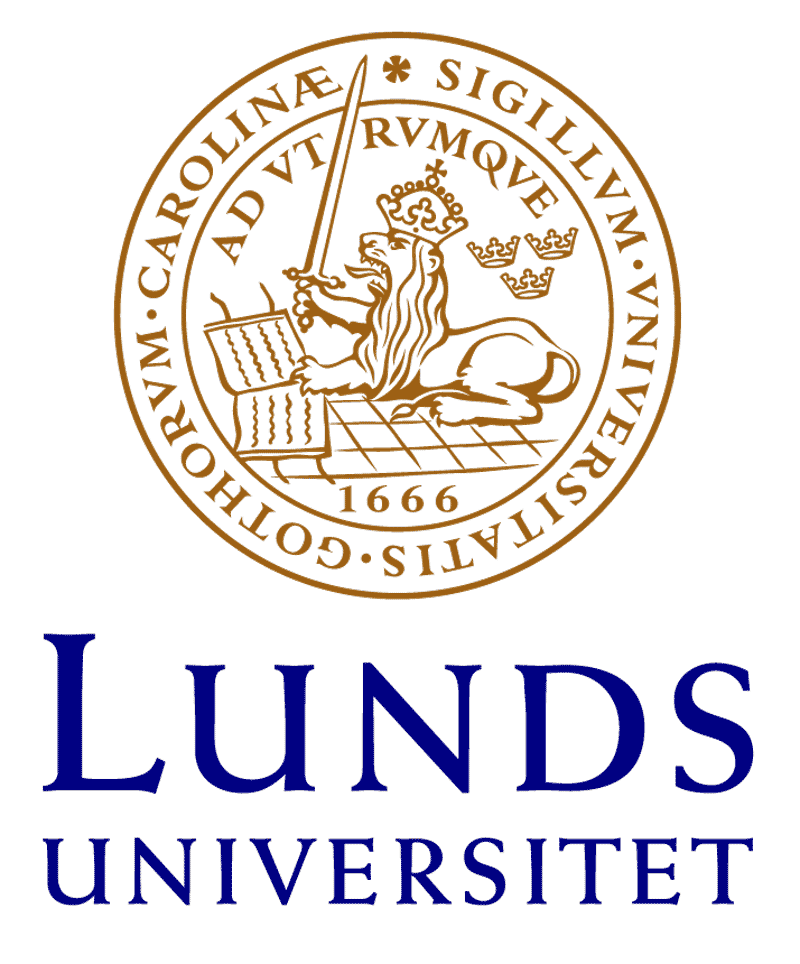
The Department of Human Geography at Lund University treats questions and issues related to how people in the Global South make a living and how the conditions for livelihoods vary within and between countries and regions, and among different groups of individuals. Research at the Department has a focus on agriculture – both in the countryside and in urban areas – especially in sub-Saharan Africa and Asia. All research carried out at the Department involves cooperation with researchers in different countries in the Global South and is based on interdisciplinary research collaboration, either within or outside the social sciences.
Research within development geography in Lund is theoretically as well as empirically driven, and uses different methods and techniques to understand processes of social, economic and environmental change in these countries. The research undertaken by the group draws on both qualitative and quantitative methods, in combination with remote sensing techniques. The Department of Human Geography hosts a Master’s Programme in International Development and Management (LUMID) and a Bachelor’s Programme in Development Studies (BIDS).

The Division of Social Medicine and Global Health pursues research in the areas of sexual and reproductive health and rights, maternal and child health, youth health, social capital, health policy, marginalized populations, mental health, violence, substance abuse, risk factors for chronic disease, and environmental stress.
The Division collaborates with a number of national and international research teams, institutions, and organizations, including NGOs in low- and middle-income countries. The majority of the researchers in the Division are also engaged as teachers and supervisors in undergraduate and post-graduate education at the Faculty of Medicine in Lund University. A key focus is to utilize accumulated knowledge to provide expertise for interventions, both nationally and internationally, in order to improve health and health systems. Research and interventions in low- and middle-income countries have primarily focused on Africa and Southeast Asia. The Division also maintains a number of large databases that represent a unique and valuable resource within the field of social epidemiology.
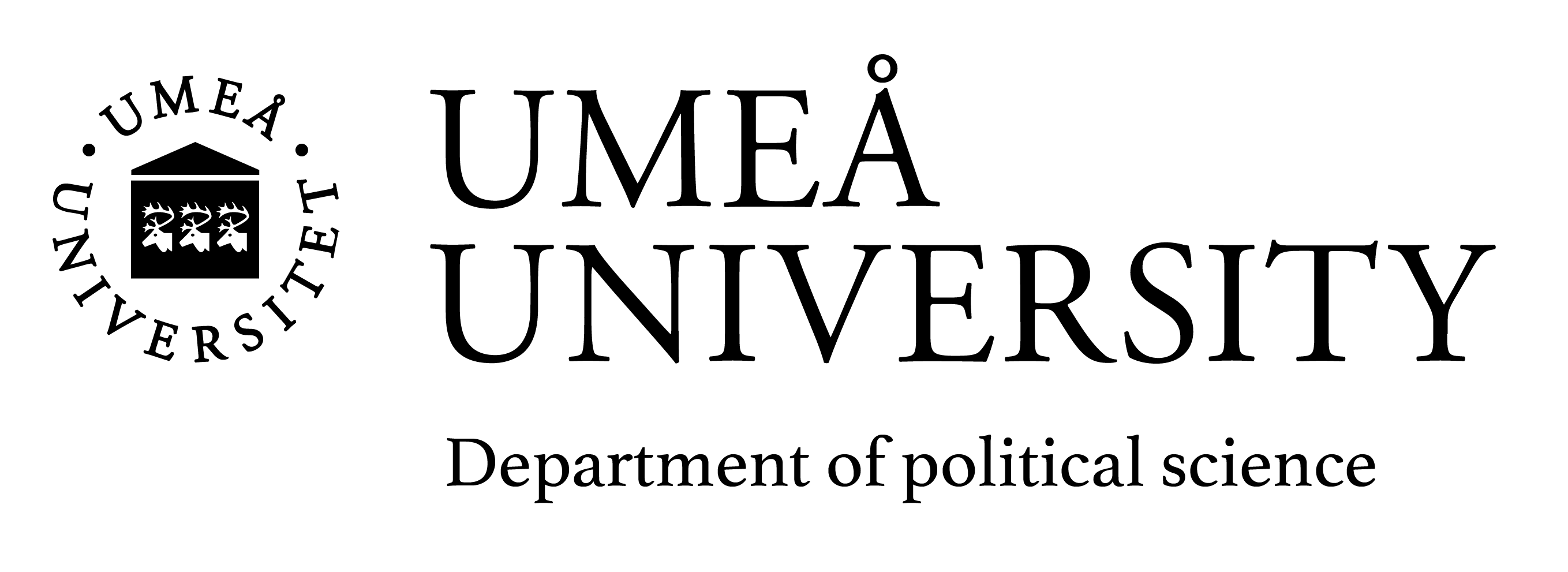
The Department of Political Science at Umeå University conducts research on a range of subjects related to development. In particular, prominent research environments within the department focus on peace and conflict studies, and environmental politics and sustainable resource management. The department offers BA and MA programmes in peace and conflict studies, crisis management and political science, and a PhD programme in political science. More broadly, Umeå University hosts multiple research environments focusing on sustainable development across all faculties, and vibrant interdisciplinary networks, most notably Umeå Transformation Research Initiative (UTRI).

The Nordic Africa Institute is a centre for research, documentation and information on modern Africa in the Nordic region. The institute was founded in 1962 and is based in Uppsala. Within the Strategy 2017–2021, the institute conducts development research in – Inclusive growth, poverty and inequality in urban and rural Africa, Climate change and sustainable development, Gender equality, Conflict, security and democratic transformation, Mobility and migration. The institute provides several scholarship programmes – Claude Ake visiting chair, African Guest Researchers’ Scholarships and Nordic Scholarships – and internships to encourage and promote development research on Africa.
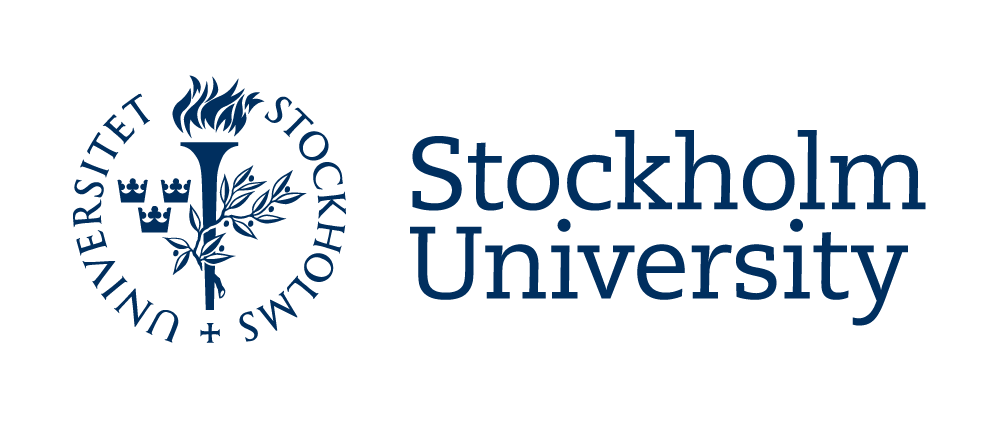
The Department of Ecology, Environment and Plant Sciences carries out research, education and external collaboration mainly focused on green biology. This is not a precise term, but includes biology related to ecology, environment and plant sciences. The research covers, for example, environmental toxins, climate change and landscape processes and how to build a society in a sustainable way. Ecological research studies the distribution and abundance of species in time and space, and the interactions among organisms and with their environment. The seas cover more than 70 percent of the surface of our planet, and hosts a great variety of habitats. They range from artic ice landscapes, Baltic Sea archipelagos, tidal flats, coral reefs and trenches deeper that Mount Everest is high. At Stockholm University, we perform research to discover more about the sea.

The Centre for Climate Science and Policy Research, CSPR, is a platform for collaborative knowledge production and dissemination to trigger and promote societal changes towards safe and just climate futures for all. The goal is to create knowledge and methodological approaches that can support and advance national and international climate actions. Researchers at the Centre for Climate Science and Policy Research (CSPR) study the challenges of climate change mitigation, adaptation and sustainability transformations. CSPR research encompasses global to local scales, from UN climate conferences to local governments and citizens. It develops, shares and applies insights and approaches from political science, geography, environmental humanities, visualization and communication, physics, environmental and sustainability science. CSPR is a research centre located at Linköping University with in the Department of Thematic Studies – Environmental Change.

Stockholm Business School (SBS) at Stockholm University is one of the largest departments of Stockholm University. SBS conducts research-based education at all levels, from undergraduate to postgraduate education. SBS traditionally has a broad field of research in the area of business administration organized in four sections: marketing, organisation and management, finance and accounting. The research deals with the study of people, markets and organisations and covers for example how power is exercised in society at large and more specifically in various companies, organizations, associations and social movements. Other examples are human resource management, entrepreneurship, social entrepreneurship both in the contexts of the global South as the North, health and lifestyle management. SBS support sustainable development in society by acting as a constructive discussion partner for business, public and third sector actors.
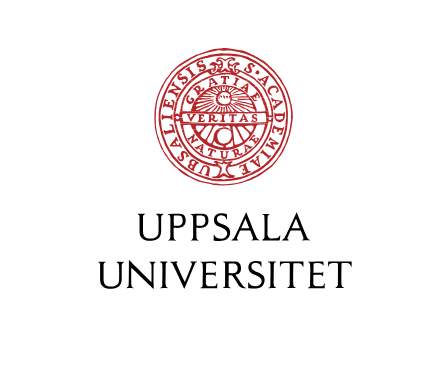
International Science Programme at Uppsala University assists low and lower-middle income countries to build and strengthen research capacity and higher education in the basic sciences chemistry, physics and mathematics.
Through the core program, ISP assists low and lower-middle income countries to build and strengthen their domestic research capacity and postgraduate education in the basic sciences – chemistry, mathematics and physics. ISP is also engaged in the Swedish coordination of all Sida bilateral research programs, as well as in other collaborations, through special agreements.

